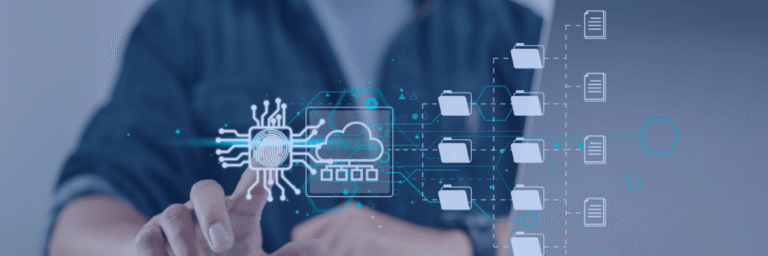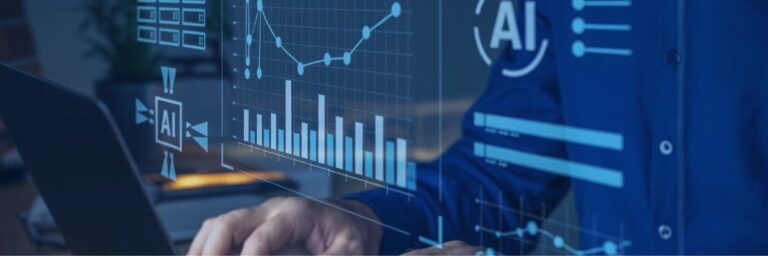As artificial intelligence continues to evolve, organizations are no longer relying solely on static automation or rule-based systems. They’re moving toward cognitive agents — AI-powered virtual entities capable of perceiving, reasoning, learning, and acting with human-like intelligence. These agents represent the next generation of enterprise automation, bridging the gap between human interaction and intelligent digital operations.
1. What Are Cognitive Agents?
Cognitive agents are advanced AI systems designed to simulate human thinking and decision-making processes. Unlike traditional chatbots or robotic process automation (RPA) bots that follow pre-programmed rules, cognitive agents combine multiple AI disciplines — including natural language processing (NLP), machine learning (ML), contextual reasoning, and sentiment analysis — to understand complex inputs and respond intelligently.
They don’t just process commands; they interpret intent, learn from interactions, and adapt over time. In essence, cognitive agents are digital counterparts of human employees — capable of engaging in natural conversation, analyzing data, and autonomously executing actions across systems.
For example, a cognitive agent in a customer support setting can detect frustration in a client’s tone, pull relevant information from the CRM, and suggest personalized solutions without human escalation.
2. How Do Cognitive Agents Work?
Cognitive agents rely on a layered AI architecture that mimics human cognition:
- Perception: They gather input from multiple sources — speech, text, data streams, or sensors — much like humans receive stimuli from their environment.
- Comprehension: Using NLP and ML, they interpret context, extract meaning, and understand the user’s intent.
- Reasoning: Cognitive engines evaluate possible actions, referencing stored knowledge and past experiences to determine the best course of action.
- Action: The agent executes decisions autonomously — updating records, triggering workflows, or engaging users in conversation.
- Learning: With every interaction, cognitive agents learn from feedback and refine their responses, becoming more efficient and context-aware over time.
This continuous feedback loop enables cognitive agents to evolve, ensuring they deliver increasingly accurate and relevant outcomes.
3. Applications of Cognitive Agents in Enterprises
Cognitive agents are transforming industries by driving intelligent automation, enhancing customer experience, and enabling data-driven decisions. Here’s how they are being applied across enterprise functions:
a. Customer Service and Support
Cognitive agents act as AI-powered virtual assistants that handle customer queries through chat, email, or voice. They can manage large query volumes, understand emotional tone, and escalate complex issues to human agents when necessary.
Example: Banks use cognitive agents to manage account inquiries, loan requests, and fraud alerts around the clock.
b. IT Helpdesk and Infrastructure Support
In IT operations, cognitive agents proactively monitor systems, detect anomalies, resolve incidents, and even recommend fixes using knowledge bases.
Example: An AI helpdesk agent can automatically resolve password resets or initiate a server restart when performance dips.
c. HR and Employee Services
Cognitive agents simplify HR operations by automating routine employee interactions such as leave applications, payroll queries, onboarding, and training recommendations.
Example: A cognitive HR assistant can guide employees through benefits enrollment or provide learning suggestions based on job roles.
d. Finance and Accounting
Enterprises deploy cognitive agents for invoice processing, expense validation, and compliance monitoring. Additionally, these agents analyze financial data, detect anomalies, and ensure compliance with regulatory policies.
Example: A finance bot might flag duplicate invoices, process payments, and alert teams about policy deviations.
e. Supply Chain and Operations
Cognitive agents enhance supply chain visibility by predicting disruptions, optimizing procurement, and coordinating logistics. Moreover, they can make decisions based on real-time data to maintain business continuity.
Example: A logistics agent could reroute deliveries automatically when traffic or weather conditions threaten delays.
4. Benefits of Cognitive Agents in Enterprises
- Enhanced Efficiency: Automates repetitive, high-volume tasks, freeing human teams for strategic work.
- 24/7 Availability: Provides continuous, real-time support to customers and employees.
- Improved Decision-Making: Uses data-driven reasoning to make faster and more accurate operational decisions.
- Personalized Experiences: Adapts interactions based on user preferences, history, and sentiment.
- Scalability: Easily scales to handle fluctuating workloads across departments or geographies.
These benefits translate into operational agility, cost reduction, and better customer satisfaction — all pillars of digital transformation.
Transform Your Business with Kanerika’s AI Solutions
Kanerika brings deep expertise in agentic AI and machine learning, helping businesses transform how they operate. From manufacturing and retail to finance and healthcare, we build AI solutions that improve productivity, reduce costs, and support innovation. Also, our focus is on solving real-world problems with models that are tailored to each industry’s needs.
We’ve developed purpose-built AI and generative AI tools that help organizations overcome bottlenecks, streamline workflows, and scale with confidence. Moreover, these solutions cover a wide range of use cases—faster information retrieval, video analysis, real-time data processing, smart surveillance, and inventory optimization. In areas like finance and operations, our AI agents support tasks such as sales forecasting, financial planning, data validation, and vendor evaluation.
At Kanerika, we design AI systems that deliver measurable results. Whether it’s improving decision-making, automating complex processes, or enabling smarter pricing strategies, our models are built to adapt and perform. Consequently, by combining deep technical knowledge with industry-specific insight, we help businesses stay efficient, agile, and ready for what’s next.
With Kanerika as your partner, achieve sustainable growth and success through AI solutions that redefine your business approach. Let’s work together to build a future of innovation and excellence.
FAQs
1. What are cognitive agents?
Cognitive agents are AI-powered systems that mimic human thinking by understanding language, reasoning with context, and making autonomous decisions based on data.
They go beyond simple automation, continuously learning from interactions to deliver intelligent, human-like responses and actions.
2. How do cognitive agents work?
They use technologies like natural language processing (NLP), machine learning (ML), and reasoning algorithms to interpret information and make context-aware decisions.
By learning from feedback and patterns, cognitive agents improve over time, enhancing both accuracy and adaptability in enterprise operations.
3. What are common use cases of cognitive agents in enterprises?
Enterprises use cognitive agents in customer service, IT helpdesks, HR, finance, and supply chain management to automate conversations and decision workflows.
For example, they can handle support tickets, process invoices, assist with onboarding, or detect fraud in real time.
4. What benefits do cognitive agents offer to organizations?
They enhance productivity by automating repetitive tasks, reduce operational costs, and provide 24/7 service availability.
Additionally, they improve data-driven decision-making and deliver personalized experiences for both customers and employees.
5. What is the future of cognitive agents in enterprises?
Cognitive agents will evolve into autonomous digital teammates that collaborate with humans and other AI systems across workflows.
They will play a key role in building intelligent, self-learning enterprises that operate with agility, precision, and foresight.










